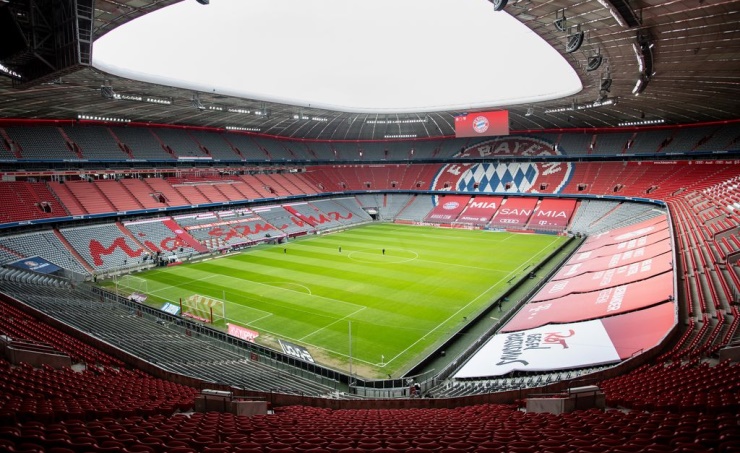Munich will remain one of the Euro 2020 host cities but Bilbao and Dublin have been dropped, the ruling body UEFA said on Friday.
The confirmation came during a UEFA executive committee videoconference after the federation was informed by local authorities it was “realistic” that all four matches in Munich could be able to welcome at least 14,500 spectators, dpa reported.
Munich’s Allianz Arena is set to host Germany matches against world champions France, Portugal and Hungary as well as a quarter-final.
Munich’s participation in the Euro 2020, postponed to this summer due to the coronavirus pandemic, was in doubt, and neither the city, not the state of Bavaria or the federal government would guarantee the presence of fans given the infection situation in the country.
UEFA had sought such guarantees from all cities that fans could attend games at the June 11-July 11 tournament.
“There is no guarantee that the games can be planned with fans. It all depends on the pandemic situation,” Bavarian top politician Florian Herrmann told dpa, adding that the local government welcomes the UEFA decision.
An interior ministry spokesman also said that containing the pandemic is the top priority and “it will depend on the infection rate whether there is a possibility to let spectators into the stadium.”
German Football Federation (DFB) president Fritz Keller named the UEFA decision an important signal and added the matches “may take place in front of fans” if “the pandemic situation allows this.
Nine other cities had made such guarantees: Amsterdam, Baku, Bucharest, Budapest, Copenhagen, Glasgow, London, Rome and St Petersburg.
Group E cities Bilbao and Dublin were in the same situation as Munich but they were removed.
UEFA expressed its “appreciation and gratitude” to both cities and said impacted ticket buyers will receive a full refund.
Spain will remain a host country as Bilbao’s games are moved to Seville, where 30 per cent of the Estadio La Cartuja’s capacity will be used for Spain’s games against Sweden, Poland and Slovakia, plus a last 16 game.
The three group matches initially scheduled for Dublin – Poland v Slovakia, Sweden v Slovakia and Sweden v Poland – will be reallocated to Saint Petersburg, while Dublin’s round of 16 match which could include England will be moved to Wembley stadium in London.
It means that the tournament will now be played in 11 instead of 12 cities.
St Petersburg now hosts six group games and a quarter-final, and Wembley eight games in all, three group games, two last 16 matches, both semi-finals and the final.
“We have been working diligently with the host associations and local authorities to ensure a safe and festive environment at the games and I am really pleased that we are able to welcome spectators at all matches for a celebration of national team football across the continent,” UEFA president Aleksander Ceferin said.
Organizers in Spain had already said on Thursday the city had been dropped as host, adding that UEFA made the decision “unilaterally” and that they are considering seeking compensation.
UEFA said “it was clear that fans were very unlikely to be able to attend the matches that were scheduled to be played” in Bilbao.
In Ireland, Sports Minister Jack Chambers told national broadcaster RTE that “we’re disappointed that this will happen but we have to be honest about what’s possible in the pandemic.”
BNA News

